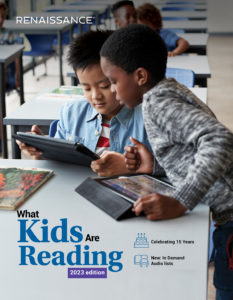October 23, 2014
Last week, the Council of Chief State School Officers (CCSSO) and the Council of the Great City Schools (CGCS) released a statement supporting the use of high-quality and meaningful assessments that fit together within a coherent program in each individual school and district. We applaud this emphasis and look forward to the thoughtful discussions and analyses that may take place within our states and largest cities as they strive to achieve these objectives.
New college and career readiness (CCR) standards have raised the bar across the country for teaching and learning, and they have also raised the bar for assessments. On the summative side, federal Race to the Top grants in 2010 funded the Partnership for Assessment of Readiness for College and Careers (PARCC) and the Smarter Balanced Assessment Consortium (SBAC). These organizations were charged with creating a common set of summative tests to compare how well standards were being addressed across states, districts, and schools. On the interim and formative side, experts focused on the classroom have also been building test items that both measure performance against the new standards and give teachers what they truly need and want—information to drive instructional decisions while limiting testing to the shortest possible amount of time.
Renaissance measures the overall utility of its assessments based on the foundational principle of this relationship between information and time. We view instructional time as sacred, and we are pioneering innovative approaches that adhere to strict time constraints while delivering actionable and timely insight to teachers that can help them maximize student growth. In the discussions to come, we are hopeful that this critical feature of assessment design is emphasized.
Many states and organizations have acted ahead of the CCSSO/CGCS call to evaluate their assessment programs against more stringent criteria. A number of states, plus organizations such as the National Center on Response to Intervention (NCRTI) and the National Center on Intensive Intervention (NCII), have reviewed available assessments for validity, reliability, and rigor while publishing findings or approved lists to guide choice. We are eager to see more states and associations view existing and yet-to-be-released assessments with a more critical eye. Organizations competing to meet high expectations will drive the innovation and continuous improvement necessary to realize the vision outlined by CCSSO and CGCS in their joint statement.
We encourage all who have an interest in this issue to embrace research-based vetting processes that identify high-quality assessments, in full fairness and transparency. We also encourage all parties to listen to the teachers and parents as we collectively strive to serve the best interest of our K12 students.
Learn more
To learn more about the power of Renaissance Star Assessments, click the button below.

